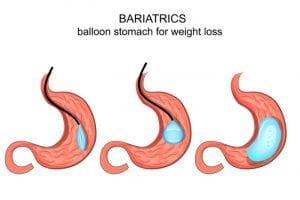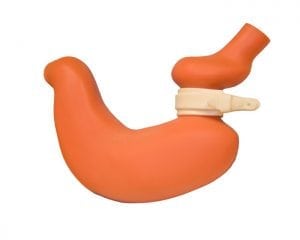 Weight loss surgery can be an extremely effective operation to help certain patients lose weight. Here are the most notable facts about weight loss procedures.
Weight loss surgery can be an extremely effective operation to help certain patients lose weight. Here are the most notable facts about weight loss procedures.
- The National Institute of Diabetes and Digestive and Kidney Disease reported that over two-thirds of adults in the United States are overweight. Women comprised of approximately 80 percent of weight loss surgeries.
- Longitudinal studies have indicated that most patients maintain successful weight loss in the long-term after receiving weight loss surgery.
- Most patients choose weight loss surgery if weight loss through diet and exercise is almost impossible.
- When performed laparoscopically, surgery for weight loss is believed to be just as safe as abdominal surgeries, such as removing a gallbladder.
Your doctor will be able to share with you the things that you may be able to look forward to following a weight loss procedure, and will be able to tell you the many benefits that relate to your situation.
Considerations for Weight Loss Surgery
 The following are some guidelines that help doctors determine if someone is suitable for weight loss surgery. A specialized obesity management team may also recommend patients for weight loss procedures.
The following are some guidelines that help doctors determine if someone is suitable for weight loss surgery. A specialized obesity management team may also recommend patients for weight loss procedures.
- The patient has been treated by a specialized obesity team
- There are no medical problems that might place the patient in danger
- Many weight loss treatments have already been tried, but they resulted in minimal success. Changes in lifestyle such as exercising and dieting have also been previously implemented
- Patients should be in reasonably good health and can safely undergo a general anesthetic
- The patient must have a body mass index between 35 and 40
- Medical conditions like high blood pressure, sleep apnea, type 2 diabetes, and severe mobility problems can be improved if the patient receives a weight loss surgery
- The patient must be committed to the long-term recovery plan after surgery for weight loss
Your doctor can let you know if you are a good fit for weight loss procedures based on your current health, medical history, and other factors. Once you are determined to be a good candidate, you can begin the conversation about determining which specific procedure is a good fit for you.
Common Types of Weight Loss Surgeries
 Throughout the years, many surgeons have performed various operations for weight loss. The technology and techniques are only improving. When determining the right surgery for a patient, an experienced surgeon may consider factors such as weight and medical issues. The availability of weight loss surgery may vary in different locations; however, gastric bypass surgery is still the most common treatment for weight loss.
Throughout the years, many surgeons have performed various operations for weight loss. The technology and techniques are only improving. When determining the right surgery for a patient, an experienced surgeon may consider factors such as weight and medical issues. The availability of weight loss surgery may vary in different locations; however, gastric bypass surgery is still the most common treatment for weight loss.
- Gastric Band Surgery: This type of weight loss surgery is one of the most common operations that has been performed. During the procedure, the surgeon will place a special band around the upper portion of the stomach to divide the body part. Since the upper part of the stomach is now smaller than its original size, patients will only need to consume small meals to feel completely full. After consuming food, the particles are digested normally by gradually passing through the lower section of the stomach
- Biliopancreatic Diversion: As one of the most complex weight loss surgeries, bilopancreatic diversion is an operation that removes a small section of the stomach. After the surgery, the fats and carbohydrates that is consumed will be not be absorbed by the body.
- Duodenal Switch: Similar to bilopancreatic diversion, duodenal switch is performed to ensure that fat is not digested and the calories from fat are not absorb, which ultimately results in weight loss without significantly changing a diet.
- Sleeve Gastrectomy: The purpose of a sleeve gastrectomy is to remove one side of the stomach so that patients can comfortably eat small meals. After the procedure, many patients report staying full for long periods of time. A sleeve gastrectomy may be ideal for those who have obesity and other health conditions that may make complex surgery riskier.
There are other variations and types of weight loss procedures that can be beneficial, and your doctor can inform you of even more options.
Benefits of Weight Loss Surgery
 The effects of weight loss surgery may drastically improve patients’ health. The following are a few conditions that may be completely reversed after receiving any of the above surgical treatments.
The effects of weight loss surgery may drastically improve patients’ health. The following are a few conditions that may be completely reversed after receiving any of the above surgical treatments.
- Type 2 Diabetes: Some patients who receive weight loss surgeries may experience an improvement in their diabetes.
- Stroke, Heart Attacks, Cancer, and Strokes: According to much research, weight loss surgeries usually enable patients to live longer by reducing the risk of heart attacks, certain cancers, stroke, and liver disease.
- High Blood Pressure: Many experts believe that those who receive surgery for weight loss are less likely to develop high blood pressure
Of course, the results that you experience will depend on your health and success following surgery. Your doctor will help you know what to expect following your procedure.
Helpful Tips for Recovery
 Following the weight loss surgery, patients will be given strict guidelines for optimal recovery. In general, patients will need to reduce their food consumption and change their exercise. Certain medications and consistent exercise is also strongly recommended. Patients should always report any concerns regarding their recovery to their provider.
Following the weight loss surgery, patients will be given strict guidelines for optimal recovery. In general, patients will need to reduce their food consumption and change their exercise. Certain medications and consistent exercise is also strongly recommended. Patients should always report any concerns regarding their recovery to their provider.
- Attend annual check-ups by the general provider
- Take certain vitamin and mineral supplements as recommended by a medical team
- Maintain positive diet and lifestyle changes after weight loss surgery
- Consume liquids like tea, coffee, fruit juices, and soups during the first few weeks of surgery. After a few weeks, consider eating soft foods like yogurts, scrambled eggs, and pasta.
- Participate in regular exercise activities
- Join a local support group
Your doctor will provide you with the steps that you should follow after your weight loss surgery in order to get the best results for your health and for your overall weight. To learn more about the different options for weight loss procedures, contact our office today for a consultation. Since there are many different types of weight loss surgeries, you will easily be able to work with your doctor to determine the one that is best for you and your situation.







